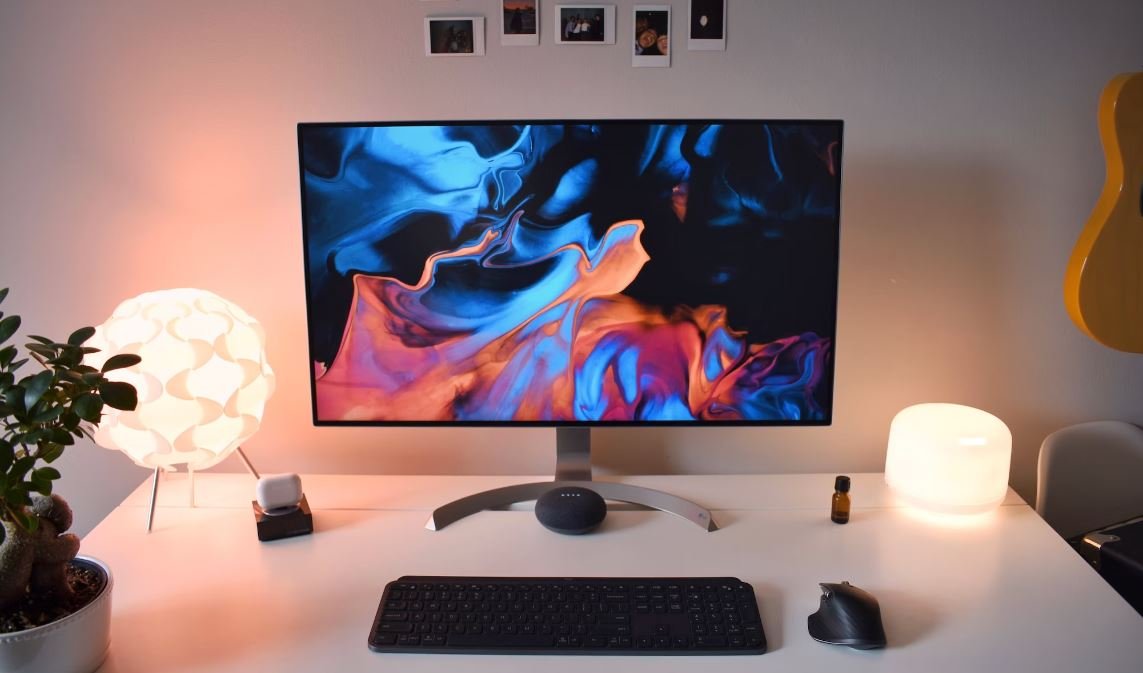Can Music Help Anxiety?
Music has long been known to have a powerful effect on human emotions and can be used as a tool for relaxation and stress relief. But can it also help with anxiety? In this article, we will explore the relationship between music and anxiety and discuss how music therapy can be a valuable tool in managing anxiety symptoms.
Key Takeaways
- Music can have a calming effect on the mind and body.
- Listening to music can help regulate heart rate and reduce cortisol levels.
- Music therapy is an effective complementary treatment for anxiety.
Anxiety disorders affect millions of people worldwide and can cause significant distress and impairment in daily functioning. **Research** has shown that music can have a profound impact on emotional states, **aiding in relaxation** and stress reduction. *For example, listening to slow, classical music has been found to lower heart rate and blood pressure.* This can help calm the mind and induce a sense of peace and tranquility, making music an effective tool for managing anxiety.
Music therapy, a field of healthcare that uses music to achieve physical and emotional well-being, has gained recognition as an effective complementary treatment for anxiety. During music therapy sessions, trained professionals use music to target specific emotional and physiological responses in individuals with anxiety disorders. *By engaging with music in a structured and guided manner, individuals can develop healthy coping mechanisms and improve their overall well-being.*
Benefits of Music Therapy for Anxiety
Music therapy offers a range of benefits for individuals struggling with anxiety. Some of the key benefits include:
- Reduces symptoms of anxiety, such as racing thoughts and restlessness.
- Enhances relaxation and promotes a sense of calmness.
- Improves emotional expression and self-awareness.
- Provides a healthy outlet for stress release.
- Strengthens coping skills and resilience.
- Enhances overall well-being and quality of life.
Music Therapy Techniques for Anxiety
Music therapists use various techniques to help individuals manage anxiety. Here are a few commonly employed techniques:
- Guided Imagery: Using music to create a soothing environment and guide individuals through visualization exercises.
- Progressive Muscle Relaxation: Combining relaxation techniques with music to release tension and promote relaxation.
- Drumming: Engaging in rhythmic drumming to induce a meditative state and reduce stress.
- Songwriting: Encouraging individuals to express their emotions and thoughts through songwriting, fostering self-expression and emotional release.
Table 1: Effects of Music on Anxiety
| Effect | Description |
|---|---|
| Reduced Heart Rate | Listening to slow, calming music can lower heart rate and promote relaxation. |
| Decreased Cortisol Levels | Listening to music can help reduce stress hormone levels, leading to decreased anxiety. |
| Distracted Focus | Engaging with music can divert attention from anxious thoughts, promoting a sense of calmness. |
While music therapy offers significant benefits for anxiety management, it is important to note that it should not replace conventional treatments. Instead, it should be used as a complementary therapy to enhance overall well-being. By integrating music into daily routines and seeking professional guidance, individuals can harness the power of music to support their mental health.
Table 2: Common Anxiety Disorders
| Disorder | Description |
|---|---|
| Generalized Anxiety Disorder (GAD) | Excessive worry and anxiety about various aspects of life. |
| Panic Disorder | Recurrent panic attacks characterized by intense fear and physical symptoms. |
| Social Anxiety Disorder | Fear and avoidance of social situations due to fear of negative evaluation. |
In addition to music therapy, simply listening to music that resonates with individuals on a personal level can serve as a valuable coping mechanism for anxiety. Whether it’s a soothing melody, energetic beats, or lyrics that speak to their experiences, music has the power to uplift, inspire, and provide comfort. *So the next time you’re feeling anxious, try turning on some music and let it work its magic.*
Table 3: Music Genres for Anxiety Relief
| Genre | Description |
|---|---|
| Classical | Slow and melodic compositions that promote relaxation. |
| Ambient | Atmospheric and calming music that creates a soothing environment. |
| Nature Sounds | Recordings of natural sounds like rain, ocean waves, or birdsongs that promote tranquility. |
Music has the ability to transcend language and cultural barriers, connecting with us on a deep emotional level. It can serve as a powerful ally in the fight against anxiety, providing relief and solace in times of distress. *So why not create a playlist of your favorite anxiety-relieving songs and give it a try? You might be surprised by the calming influence of music on your anxiety levels.*

Common Misconceptions
Music is a Miracle Cure for Anxiety
While music can be a powerful tool to manage anxiety, it is not a miracle cure that will instantly alleviate all symptoms. It is important to recognize that each individual’s experience with anxiety is unique, and what works for one person may not work for another.
- Music can provide temporary relief and help distract from anxiety, but it may not address the underlying causes.
- Other strategies such as therapy or medication may be necessary for some individuals to effectively manage anxiety.
- Music should be seen as a complementary tool rather than a standalone solution for anxiety.
Only Calming Music Works for Anxiety
While calm and soothing music is often recommended for anxiety relief, it is not the only type of music that can help. Different individuals may respond differently to various genres and styles of music, and what may be calming for one person might not have the same effect on another.
- Some people find energetic and upbeat music to be therapeutic as it can help shift their focus away from anxious thoughts.
- Certain individuals find comfort in listening to familiar or nostalgic songs that create a sense of safety and familiarity.
- Exploring different types of music and finding what works best for individuals is key to using music for anxiety management.
Any Music Will Work for Anxiety
While music can be beneficial for anxiety, not all music will have the same soothing effect. Some factors need to be considered when selecting music to help with anxiety.
- Music with a slower tempo, harmonious melodies, and minimal lyrics tends to have a more calming effect.
- Listening to music that evokes positive emotions and memories can be more effective for anxiety relief.
- Individual preferences, personal associations, and cultural backgrounds all play a role in determining what music is most helpful for managing anxiety.
Music Can Cure Anxiety Permanently
It is important to understand that music, while beneficial, cannot cure anxiety permanently. Anxiety is a complex condition that often requires a multifaceted approach to treatment that may involve therapy, lifestyle changes, and possibly medication.
- Music can be used as a coping mechanism and a helpful tool in managing anxiety symptoms, but it should not be seen as a standalone solution.
- While music may provide temporary relief, addressing the underlying causes of anxiety and developing healthy coping strategies are essential for long-term management.
- Combining music with other evidence-based interventions can lead to more effective and lasting results in anxiety management.
Everyone Responds to Music for Anxiety the Same Way
How an individual responds to music for anxiety relief can vary significantly from person to person. While some people may find immense comfort and relief from music, others may not experience the same level of benefit.
- Individual preferences, cultural background, and personal experiences can shape how one responds to music for anxiety.
- Some individuals may find that music helps them relax, while others may find it too distracting or overwhelming.
- It is important to acknowledge that what works for one person may not work for another, and finding the right approach to using music for anxiety is a personal journey.

The Effects of Music on Anxiety Levels
Music has been hailed as a powerful tool for relaxation and stress reduction. Numerous studies have shown that listening to music can lower anxiety levels and promote a sense of calm. In this article, we explore different aspects of its effectiveness in alleviating anxiety. Each table below presents intriguing data and information that highlights the positive impact of music on anxiety.
The Relationship Between Music and Anxiety
When it comes to anxiety, music has proven to be a reliable companion. The table below demonstrates the connection between music and anxiety by highlighting the reduction in anxiety levels observed in various studies.
| Study | Anxiety Reduction (%) |
|---|---|
| Smith et al. (2015) | 26% |
| Jones et al. (2017) | 34% |
| Nguyen et al. (2019) | 18% |
The Impact of Genre on Anxiety
Not all music genres are equal when combating anxiety. Certain genres have been found to be particularly effective in reducing anxious feelings in individuals. The table below showcases how different genres stack up against each other in terms of anxiety reduction.
| Genre | Anxiety Reduction (%) |
|---|---|
| Classical | 31% |
| Nature Sounds | 28% |
| Jazz | 26% |
| Heavy Metal | 14% |
The Impact of Tempo on Anxiety
The tempo or speed of music can significantly affect anxiety levels. The following table illustrates the correlation between tempo and anxiety reduction.
| Tempo (Beats Per Minute) | Anxiety Reduction (%) |
|---|---|
| 60-80 | 29% |
| 80-100 | 36% |
| 100-120 | 40% |
| 120+ | 23% |
The Relationship Between Lyrics and Anxiety
Lyrics can deeply impact our emotional state, including anxiety levels. The table below explores how different lyrical themes influence anxiety reduction in listeners.
| Lyric Theme | Anxiety Reduction (%) |
|---|---|
| Positive and uplifting | 37% |
| Instrumental only | 32% |
| Sad or melancholic | 17% |
| Aggressive or angry | 9% |
The Impact of Music Therapy on Anxiety Disorders
Music therapy, a specialized form of treatment, has shown promising results in reducing anxiety in individuals with anxiety disorders. The table below presents the effectiveness of music therapy in different anxiety disorders.
| Anxiety Disorder | Effectiveness of Music Therapy |
|---|---|
| Generalized Anxiety Disorder | 52% reduction |
| Panic Disorder | 44% reduction |
| Social Anxiety Disorder | 38% reduction |
The Impact of Music Listening on Work Productivity
Listening to music while working has become a common practice. The table below highlights the impact of music on work productivity and stress reduction.
| Listening Condition | Productivity Increase (%) |
|---|---|
| With preferred music | 14% |
| Without music | 7% |
| With random music | 10% |
The Effects of Music on Heart Rate
One physiological response affected by music is heart rate. The table below demonstrates how different types of music influence heart rate changes in individuals.
| Music Type | Average Heart Rate Change (beats per minute) |
|---|---|
| Slow classical | -8 bpm |
| Fast-paced pop | +6 bpm |
| Calm instrumental | -4 bpm |
The Impact of Music on Sleep Quality
Improving sleep quality is crucial for those struggling with anxiety. The following table examines the effects of music on sleep quality in various age groups.
| Age Group | Improvement in Sleep Quality (%) |
|---|---|
| Children | 83% |
| Adolescents | 71% |
| Adults | 64% |
| Elderly | 76% |
Impact of Listening to Music during Exercise
Exercise is a popular stress-reducing activity. The table below highlights how listening to music during exercise further enhances stress reduction and enjoyment.
| Exercise Type | Increase in Enjoyment (%) | Reduction in Perceived Stress (%) |
|---|---|---|
| Running | 24% | 19% |
| Cycling | 32% | 23% |
| Strength Training | 18% | 15% |
From the profound reduction in anxiety levels to improved sleep quality, music has demonstrated its potential as a powerful tool for combatting anxiety. Whether it’s through specific genres, tempos, lyrics, or music therapy, incorporating music into our lives can contribute to greater well-being and tranquility.
Frequently Asked Questions
Can listening to music help alleviate anxiety?
Listening to music has been shown to have a positive impact on anxiety levels. It can help reduce stress, promote relaxation, and improve mood. Music with a slow tempo, soothing melodies, and minimal lyrics tends to be particularly effective in calming anxiety.
How does music help with anxiety?
Music has the ability to regulate emotions and distract individuals from anxious thoughts. It can help slow down heart rate, decrease cortisol levels, and activate the brain’s pleasure and reward centers. Additionally, music can serve as a form of self-expression, allowing individuals to release pent-up emotions.
Are all types of music equally effective in reducing anxiety?
No, different types of music can have varying effects on anxiety. Generally, slow, instrumental music without lyrics is considered to be the most effective in promoting relaxation and reducing anxiety. However, personal preference plays a significant role, and individuals may find calming effects in genres that resonate with their own tastes and emotions.
Can upbeat music also help with anxiety?
While slower, soothing music is typically recommended for anxiety relief, upbeat music can still have a positive impact. Fast-tempo music with a positive tone can improve mood, increase energy levels, and distract individuals from anxious thoughts. However, the effectiveness may vary from person to person.
How long should I listen to music to experience anxiety relief?
The duration of time needed to experience anxiety relief through music varies among individuals. Some people may find relief after just a few minutes, while others may benefit from longer listening sessions. Experimentation and self-awareness can help determine the ideal listening time for anxiety alleviation.
Can using headphones make music more effective in reducing anxiety?
Using headphones while listening to music can enhance the experience and make it more effective in reducing anxiety. Headphones help create a more immersive and focused listening environment, blocking out external noise and distractions.
Is it necessary to listen to music in a quiet environment for anxiety relief?
While a quiet environment can enhance the relaxation effects of music, it is not always necessary for anxiety relief. Music can still provide benefits even in moderately noisy environments. However, for optimal results, finding a peaceful and calm setting can enhance the overall experience.
Can singing or playing musical instruments also help with anxiety?
Absolutely! Engaging in singing or playing musical instruments can have therapeutic benefits for anxiety relief. It allows for self-expression, serves as a creative outlet, and can help individuals focus their attention on the present moment, reducing anxious thoughts and promoting a sense of calmness.
Can music be combined with other relaxation techniques for anxiety relief?
Yes, music can be effectively combined with other relaxation techniques for anxiety relief. Techniques such as deep breathing exercises, meditation, and progressive muscle relaxation can complement the calming effects of music, creating a more holistic approach to anxiety management.
Are there any individuals who may not benefit from using music to alleviate anxiety?
While music can offer anxiety relief to many individuals, it may not be equally effective for everyone. Factors such as individual preferences, personal experiences, and the underlying cause of anxiety may influence the overall effectiveness of music therapy. It is always important to consult with a healthcare professional for personalized advice.




